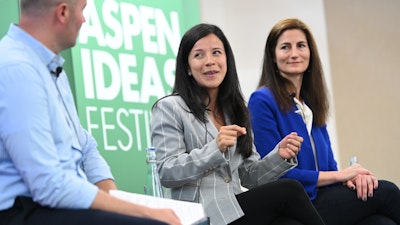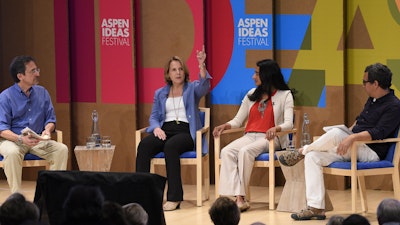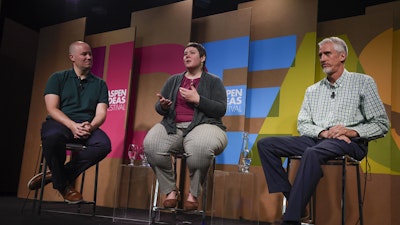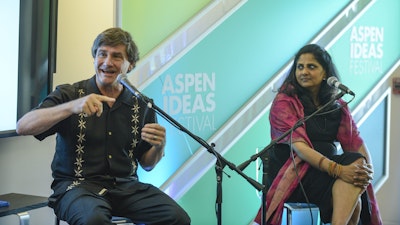
Ross Andersen
Senior Editor, The Atlantic
Ross Andersen is a senior editor at The Atlantic, where he oversees the science, technology, and health sections. Prior to joining The Atlantic in 2015, he was the deputy editor of Aeon magazine, and before that, he was the science editor of the Los Angeles Review of Books. In addition to his work as an editor, Andersen is known for his award-winning feature essays, which straddle philosophy, technology, science, history, and the arts.
Previously

Our planet can sustain life because of one universally unique feature: the ocean. It produces half the oxygen we breathe, nourishes our bodies with food and our minds with ins...

When we understand how our emotions work — and how they can trick us for both good and bad outcomes — we can turn them into superpowers. Hear from researchers and practitioner...

Accumulating scientific evidence about emotion defies common sense, suggesting common beliefs about emotions have been in error for over 2,000 years. We’ll dispel three widesp...

For years, dogs have been getting the short end of the stick — so to speak — when it comes to research. Dolphins and primates get lots of attention. Now, it’s the dog’s turn....

What can you learn about yourself by understanding the animal mind? A lot, it turns out. In this deep dive, three professors explain how your personality, logic, and ability t...

Energy savings deliver more global energy services than oil. Yet across sectors, like building, mobility, and industry, many major efficiency potentials are often overlooked....

Many of the people doing today’s most consequential environmental work — restoring America’s grasslands, wildlife, soil, rivers, wetlands, and oceans — would not call themselv...

Often overshadowed by terrorism, nuclear weapons, and cybercrime in the public imagination, pandemics may actually be the more existential threat to human civilization. And mo...

As the United States leaves the Paris Agreement, how will the leadership vacuum be filled? Will China continue to surge ahead, tackling air pollution and investing in renewabl...

As scientists have slowly come to grasp the seriousness of climate change, many have begun to doubt that humans can transition away from fossil fuels fast enough to avoid seri...

Our signature event, the 2016 Afternoon of Conversation hosts an audience of more than 2,000 in the Benedict Music Tent. From criminal justice for the most vulnerable, to spac...

Ever since humans looked up at the night sky, we have searched for clues that connect the celestial and terrestrial. However, it was not until the birth of modern science—seek...

Black holes are dark. That’s their essence. Being dark against a dark sky and a shadow against a bright sky are the defining features that earned them a name. A telescope has...

